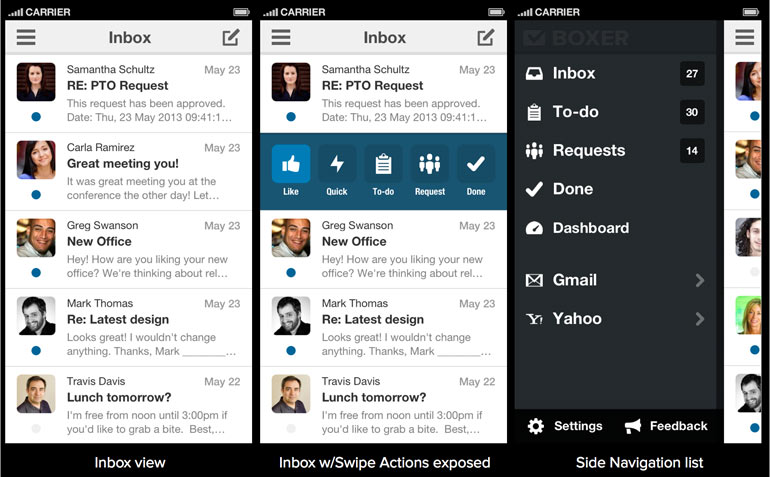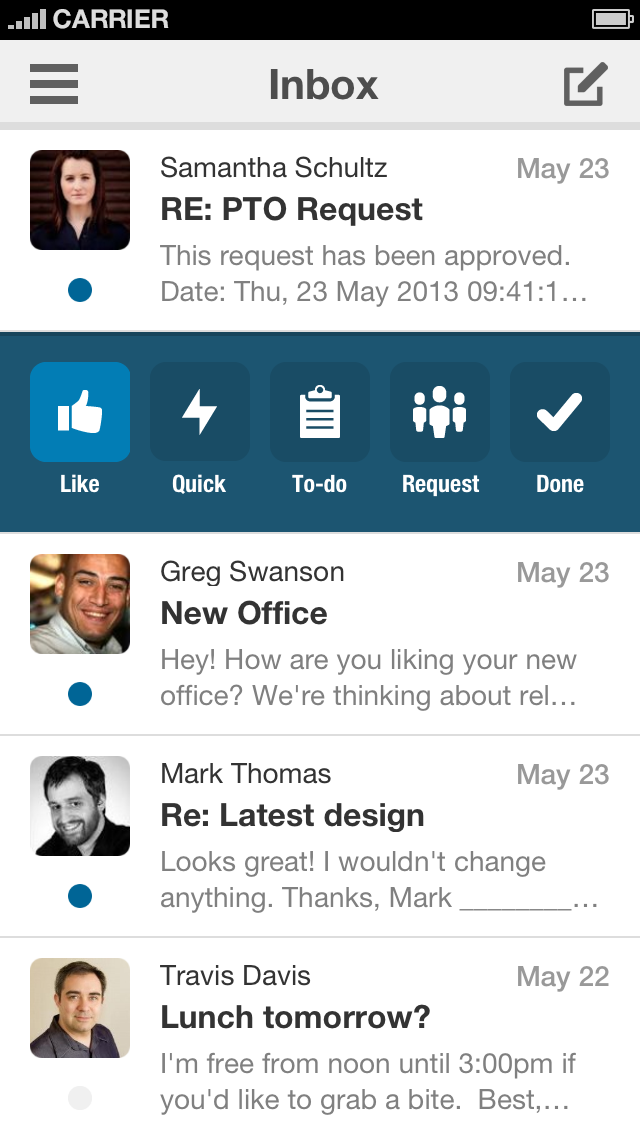![]() I was one of the first people to dismiss the hoopla surrounding Mailbox, the wildly popular startup that provided what appeared to be a good alternative to iOS mail. They were able to get millions of people excited about the app by creating an exclusive sign up / invite list when you downloaded the app. When it was launch day you got to check your phone every few minutes to see how far you were away from getting one of the most overly hyped apps of all time.
I was one of the first people to dismiss the hoopla surrounding Mailbox, the wildly popular startup that provided what appeared to be a good alternative to iOS mail. They were able to get millions of people excited about the app by creating an exclusive sign up / invite list when you downloaded the app. When it was launch day you got to check your phone every few minutes to see how far you were away from getting one of the most overly hyped apps of all time.
Early on I thought I was the only person on earth who thought Mailbox sucked. I was quickly vindicated by fellow journalist Nicholas Carlson at Business Insider, who saw the same shortcomings of the Mailbox app for people who actually get and rely on email.
Luckily for me, shortly after the Mailbox dust settled (and they were acquired by DropBox), I met Andrew Eye at SXSW. Eye was showing off his new app, at the time called TaskBox. Now Taskbox was made for people that get a constant flow of email for work. You can see some of the reasons I love Taskbox, here.
After spending some time with Eye at SXSW, we were one of the first media outlets that he called when they announced they had merged with Boxer, the latest startup created by Xoogler Jason Shellen, founder of Brizzy and his even newer latest thing, The Secret Agency. They quickly combined features and in June relaunched as Boxer.
Yesterday they announced that they had raised a $3 million dollar seed round led by Sutter Hill Ventures. In addition to having an excellent feature set, Boxer cites their open integration platform and existing integrations with Box, DropBox, LinkedIn and Facebook as keys to their future.
“As mobile devices have become our primary means of receiving and reading email, users have become increasingly frustrated with the primitive experiences provided by stock email apps,” Eye said in a statement. “Now, with the backing from Sutter Hill Ventures, Boxer can continue to execute on our strategy of extending the mobile mail experiencewith relevant third party information and interactions.”
Boxer has assembled a worldclass executive team and advisory board filled with proven entrepreneurs and industry veterans. Originally founded in 2012 by CEO Andrew Eye (former COO Ciphent Inc. 500 #16) and CTO Adam Cianfichi, Boxer added VP of Engineering Ian Ragsdale (former CTO at email startups OtherInbox and Skylist) and VP of Product Timothy Sullivan, (former mobile product lead at Zynga) in 2013.
“Mobile devices have changed the way we work, however the mobile inbox remains much the same as it was earlier this decade,” said Sam Pullara, Managing Director at Sutter Hill Ventures.“Boxer was an attractive investment opportunity because it opens the inbox to third party innovation, and a new era of mobile productivity.”
The Austin based startup launched out of the Capital Factory, which is led by Josh Baer, a pioneer in the world of email.
Download Boxer for yourself here, and find out why it really just works.


















